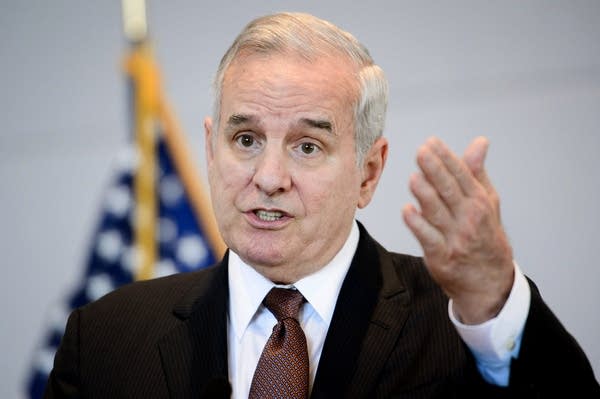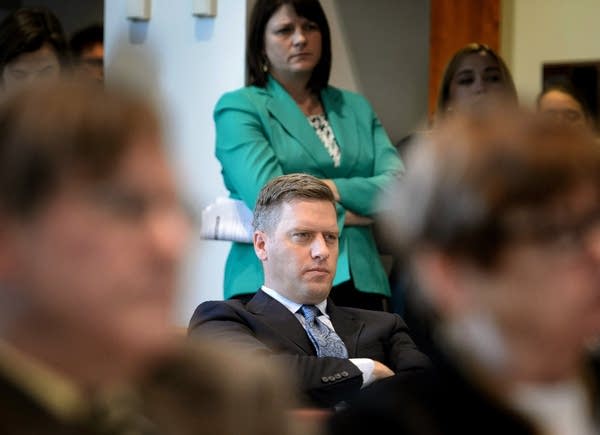Fork in the road for MN transportation funding: Gas tax or sales tax?
Go Deeper.
Create an account or log in to save stories.
Like this?
Thanks for liking this story! We have added it to a list of your favorite stories.

The debate over paying for transportation in Minnesota took an unexpected turn recently when DFL Gov. Mark Dayton abandoned the gas-tax proposal that he and Senate Democrats championed in the last legislative session.
When the latest state economic forecast showed a $1.2 billion budget surplus, the governor said the gas-tax increase appeared dead.
Republicans were quick to cheer. "I think that's a very good statement and move," said Rep. Tim Kelly of Red Wing, who chairs the House Transportation Committee. "It makes me feel even that much more optimistic about our ability to get the job done come March."
But Senate Democrats aren't backing off the gas tax. Sen. Scott Dibble, DFL-Minneapolis, the chair of the Senate Transportation and Public Safety Committee, said a gas-tax increase will be politically tough, but he's not willing to declare it dead.
Turn Up Your Support
MPR News helps you turn down the noise and build shared understanding. Turn up your support for this public resource and keep trusted journalism accessible to all.
"The Legislature really does have to kind of deliberate within the confines of the legislative body on the outcomes of a lot of these policies," Dibble said. "Engage the governor in the end, of course, to make sure he's comfortable with the approach. I think he would sign a bill with the gas tax in it if we got it to him."
Dibble and other Democrats view the gas tax as the most reliable long-term funding option. They remain concerned about the House GOP plan, which would take existing sales tax revenue from auto parts, rental cars and vehicle leases to help pay for roads and bridges.
Dayton said voters should decide that point.
"I think there should be a constitutional amendment," Dayton said. "I think some of those general fund revenues, sales tax, could be used justifiably for transportation. But that's permanently removing those revenues from the general fund. So, first of all it's going to deplete the general fund for years ahead. And secondly, it's not going to be close to what the needs are, have been identified of over $6 billion over the next decade."
Last spring, Dibble proposed a constitutional dedication of automobile parts sales taxes, along with a modified gas-tax increase, in an attempt to jump-start stalled negotiations.
Dibble said the proposed compromise is now off the table, and he plans to renew talks based on last session's Senate transportation bill. Dibble is noncommittal about a constitutional amendment.
"I don't know that that's my proposal at this point," he said. "We're just putting things out there that are worthy of debate, consideration and discussion."
House Republicans have mixed feelings.
Kelly said he believes the sales tax revenue can be sufficiently dedicated through state statute. He said he doesn't want the debate over a constitutional amendment to get in the way of passing a good bill.
"You want your legislators to have the ability to prioritize as those things come up," he said. "So, I'm just not in favor of constitutionally dedicating anything in the budget."

Republican House Speaker Kurt Daudt of Crown, on the other hand, said he is open to the idea. Daudt said legislators might be more comfortable using the Constitution to dedicate the sales tax revenue than doing it by statute.
"That would be something that would solve the question about, is this long-term constitutionally dedicated funding?" Daudt said. "And frankly, we would be leaving it up to the voters then to decide: Do you want to take this money and use it for road and bridge infrastructure and dedicate it constitutionally for that purpose? I actually think that would be popular on the ballot."
A constitutional amendment question needs only House and Senate approval to get on the ballot. It does not require the governor's signature.
There's already one amendment question teed up for next November. Voters will decide whether to turn over responsibility of future legislative salary increases to a citizen commission.



